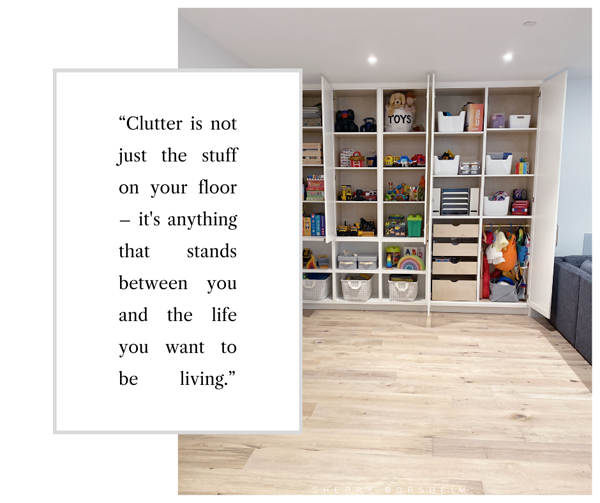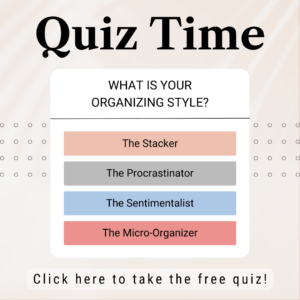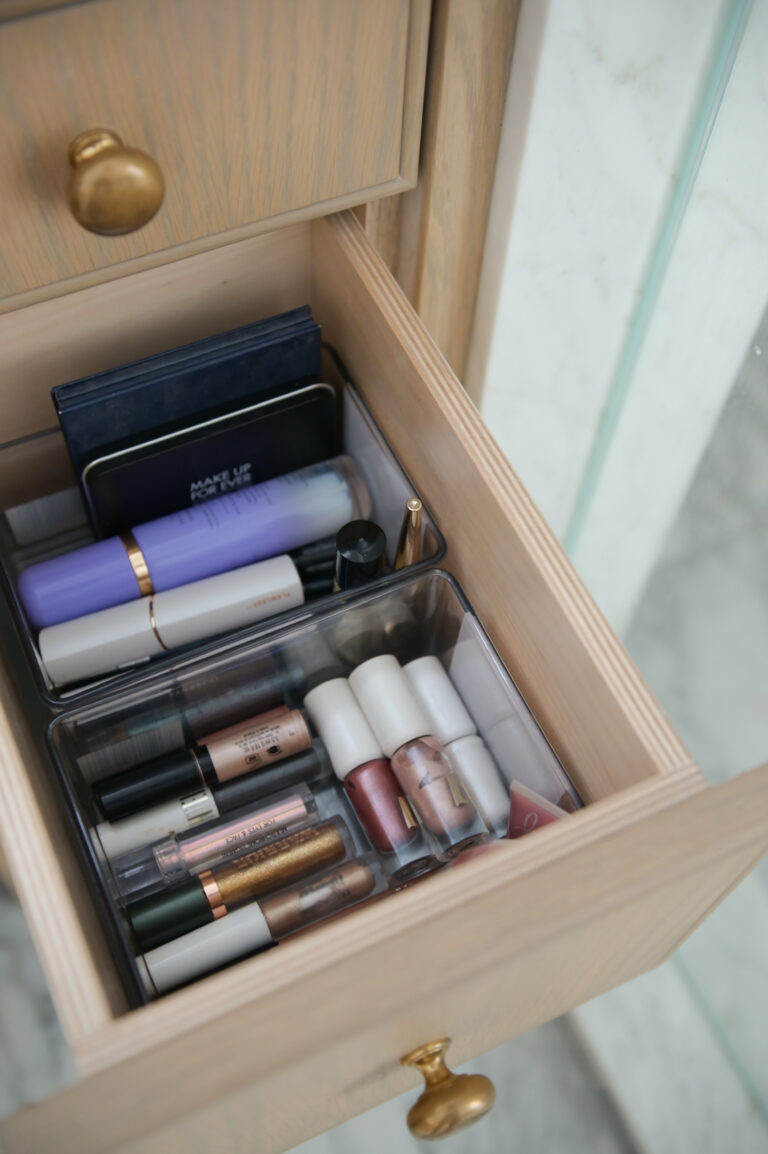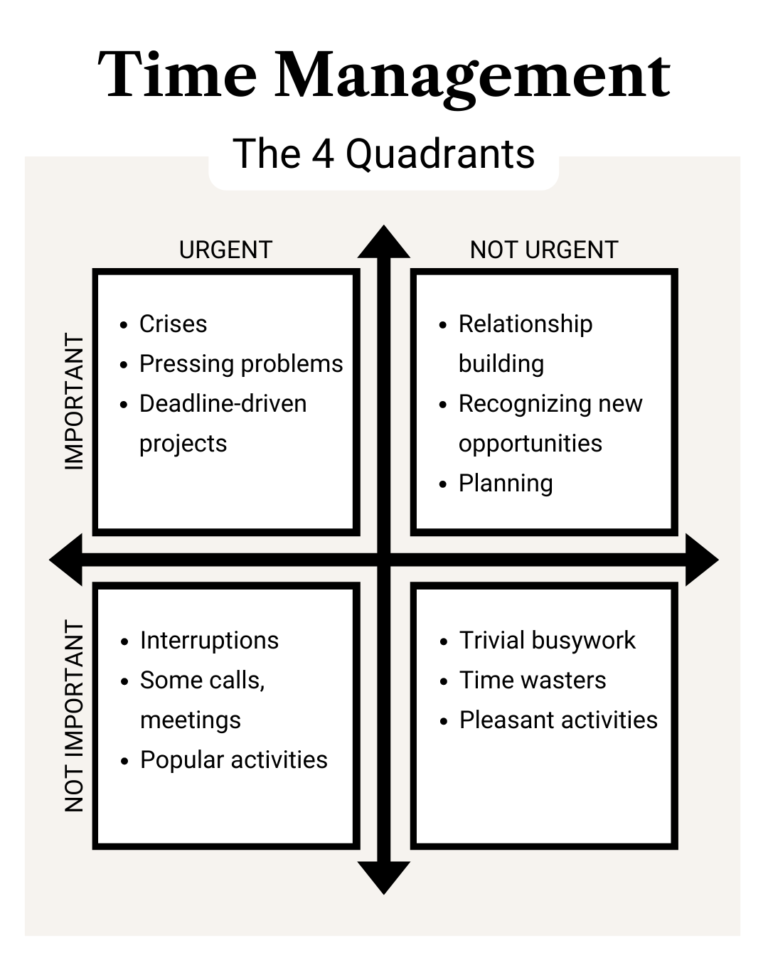“Hey Sherry,
Could you write about how to free mind clutter?”
Have you ever gone to bed at the end of a stressful day, only to lay there for hours thinking of all the things you need to do the next day?
You stress over all the things you need to do and try not to forget when you get up in the morning. Things like calls, emails, and texts to reply to. Kids’ school papers to sign, groceries to buy, what to cook for dinner, and a birthday party to plan. Oh, and don’t forget all the errands, too!😮💨
Next thing you know you’re waking up exhausted in the morning with a major lack of sleep from all the mental notes to remember.
This is called mind clutter.
These are stress signs from your brain that you need to slow down your mental pace and reduce mind clutter.

You could organize your house a hundred times over but when it comes down to it – your headspace follows you everywhere in life. You need to declutter your mind in order to really take care of your personal well-being.
No amount of reading quotes online or thinking “I need to get back to myself” is going to transform your mind to a state of peace. You just simply have to do the work.
Which brings us to the question…how can we reduce stress and mental clutter? As a Professional Organizer, I have had a ton of experience teaching how to organize both physically and mentally.
I see firsthand every day what works and what doesn’t. These habits are what I incorporate into my everyday routine and I now reap the benefits of my mind clutter being off my mind.
Saying Goodbye to Mind Clutter Anxiety:
✍️ Write it down:
Do a “brain dump” and get your thoughts onto something visual like a notebook or your phone. Write down all the tasks, reminders, errands, dreams, and goals that are cluttering your mind and keeping you awake at night. Don’t evaluate or try to organize this list, just let it flow onto the paper. This exercise alone will remove most of the mind clutter causing you stress, anxiety, frustration, and sleepless nights!
📝 Prioritize Your List:
Look at the list you just made from the mind clutter brain dump and highlight or circle the most important tasks that you want to accomplish next week. This will make the biggest impact on cutting your list down! Sometimes completing one task will take care of many other small tasks, kind of like a domino effect.
🧘🏽Meditate:
The goal of meditation can fluctuate. It doesn’t always need to be a deep experience or take a lot of time. Allotting yourself time throughout the day to focus on yourself is highly rewarding. The length can be flexible; maybe some days you have a good hour, some days only five minutes. It can be however best fits your lifestyle and however often you feel will give you the benefits you desire. Try asking yourself what you really need in the moment and allow any feelings, words, or images to flow.
Listen to your body and notice how you feel after just these few exercises. Are your shoulders more relaxed and not up at your ears? Are you breathing more calmly? Do you feel more in control and confident that your reminders aren’t slipping through the cracks?🤔
All these emotions and feelings are mind clutter. Let’s uncover some more on how to reduce stress and mind clutter:
📆 Use a Calendar System:
Pick your tool and stick to it! I can’t stress this enough. Use a digital calendar or a hybrid of a paper planner, daily task list, and/or digital planner. Digital lets you capture appointments and reminders within the moment no matter where you are. Writing down in a traditional paper planner to plan the next day works for others who are more hands-on. Personally, I use a paper planner and a digital planner and I like to plan my day the night before. This sets my mind at ease – which means I get better sleep and I’ve already put my plan in motion for the next day.
🕐 Batch and Block Time:
This is the secret sauce to being highly productive. When you batch time to do specific tasks, you reduce the mind clutter of switching back and forth between different tasks. Batching also saves you time as you’re not multi-tasking and unfocused. Things to batch are; calls to make, checking your email twice a day, content creation, errands, organizing your computer photos, family time, meal prep, and the like.
In conclusion, the more we can consciously manage our to-do lists, the more we are able to unpack our stresses. When a weekly schedule is organized it leaves us with more time to relax and enjoy that time with our loved ones – and who doesn’t need more of that?❤️
If this article reminds you of someone who needs to declutter their mind, pass along the tips!











